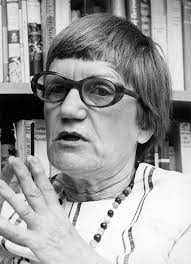Boserup, Ester

Bio: (1910-1999) Danish economist and gender theorist. Ester Boserup obtained her degree in theoretical economics in 1935 at the University of Copenhagen and later worked for the Danish government and United Nations. She studied the Neolithic agricultural revolution in the book The Conditions of Agricultural Growth: the Economics of Agrarian Change Under Population Pressure (1965). In it, she developed the theory of agricultural intensification, also known as „Boserup's theory“, which states that population changes is what drives the intensification of agricultural production. Boserup concluded that increasing population density led to the transformation of the environment and the introduction of new technologies, especially in agriculture, by switching from a "slash and burn" type of agriculture to plow and irrigation-based agriculture. By analyzing different agricultural systems, she found that, although the gender division of economic roles exists in every society, those roles, as well as the social importance attached to them, are very different in different types of agriculture. Gender roles are always a product of culture, but in societies where women's work has more economic weight, men's and women's gender roles are less unequal.
Theoretical approaches
Feminism, SociologicalMain works
The Conditions of Agricultural Growth: the Economics of Agrarian Change Under Population Pressure (1965);
Woman's Role in Economic Development (1970);
Foreign Aid to Newly Independent Countries: Problems and Orientations (1971);
Population and Technological Change: A Study of Long-Term Trends (1981).

